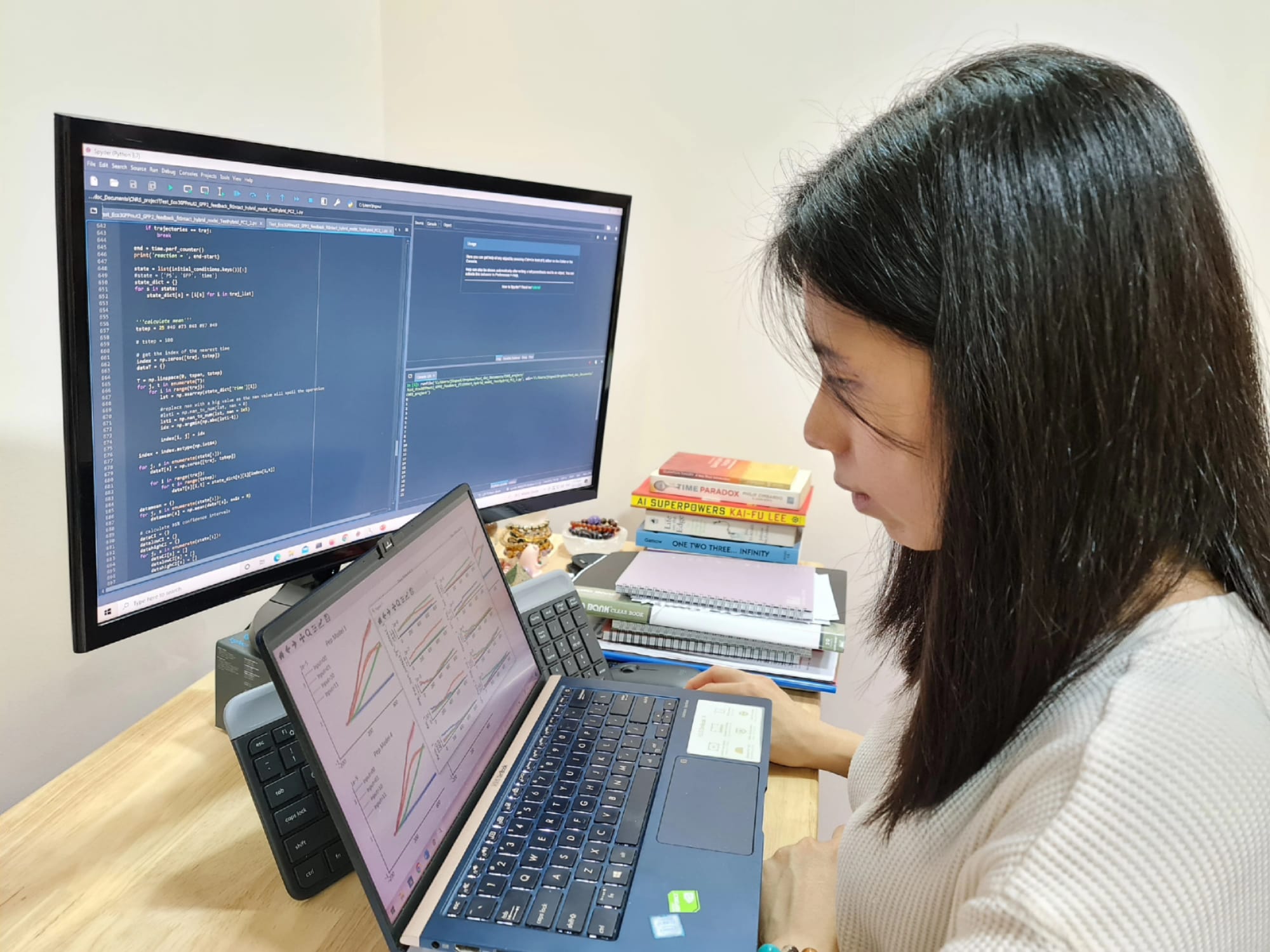Meet Yeoh Jing Wui: A Computational Role Model In Synthetic Biology
By Kami Navarro

With massive computing power at our fingertips, computational techniques such as in silico mathematical modelling have become essential tools in many a scientists’ toolbox. Given the sheer complexity of biological data, such models can be used to analyse complex systems, reveal previously unseen patterns, and simulate potential scenarios.
At SynCTI, researchers like Yeoh Jing Wui are leveraging models to deepen our understanding of genetic circuits and expedite the development of data-driven experimental setups. One such modelling tool developed by Jing Wui and her colleagues is BMSS2, a Python package that streamlines and automates model selection for experimental design in synthetic biology.
In this interview, learn more about Jing Wui’s work as a Senior Research Fellow and computational modeller at SynCTI.
1. Can you briefly tell us about your research on computational modelling?
My research mainly focuses on developing in silico mathematical models to describe the behaviours of genetic circuits, interactions with cellular resources, and with environmental factors for bioprocess designs. The developed models can be used to provide quantitative insights into the underlying mechanisms and to narrow down design spaces to guide the experimental design and optimization through a more rational approach. We also develop computational modelling tools/platforms to expedite and streamline the model selection and analysis process, to ease the use of the model-driven approach in guiding the experimental design.
2. What inspired you to explore the field of synthetic biology?
The recent boom in synthetic biology has been seen as a disruptive technology with tremendous potential which can deliver new sustainable solutions to various global challenges ranging from ingredients, foods, biomaterials, and human therapeutics from renewable biomass to DNA storage etc. It should continue to be one of the leading areas in science in the upcoming decades. More importantly, given the fast development of high-throughput methods and instruments and AI applications, we envision to see more breakthroughs in the coming years.
3. What do you enjoy most about working at SynCTI?
SynCTI offers a very good and friendly environment which is full of talented people with different expertise in the field. More importantly, we have access to all the different facilities, insightful seminars, as well as helpful networking and collaboration opportunities.
4. Is there any advice you’d like to share to aspiring synthetic biologists?
Nothing worthwhile comes easily. It only comes with continuous hard work. You can’t solve a problem on the same level that it was created. We need to continuously equip ourselves with new skillsets and embrace the advances in this fast-growing field.
5. Outside of the laboratory, what do you enjoy doing?
Outside of work, I enjoy learning new things from online courses, be it career-related to expand my own skill sets or hobby-related. Also, I enjoy practicing Chinese calligraphy which allows me to relax and enter a state of flow. I am also a crystal collector, who loves to learn and explore the different healing properties.

Yeoh partaking in two of her hobbies, namely Chinese calligraphy and crystal collection


